第11章 Chapter 2(6)
It is logically due to follow that the same general principles of knowledge and validity will presently undergo a revision of the same character where they have to do with those imponderable facts of human conduct and those conventions of law and custom that govern the duties and obligations of men in society. Here and now as elsewhere and in other times the stubborn teaching that comes of men's experience with the tangible facts of industry should confidently be counted on to make the outcome, so as to bring on a corresponding revision of what is right and good in that world of make-believe that always underlies any established system of law and custom. The material exigencies of the state of industry are unavoidable, and in great part unbending; and the economic conditions which follow immediately from these exigencies imposed by the ways and means of industry are only less uncompromising than the mechanical facts of industry itself. And the men who live under the rule of these economic exigencies are constrained to make their peace with them, to enter into such working arrangements with one another as these unbending conditions of the state of the industrial arts will tolerate, and to cast their system of imponderables on lines which can be understood by the same men who understand the industrial arts and the system of material science which underlies the industrial arts. So that, in due course, the accredited schedule of legal and moral rights, perquisites and obligations will also presently be brought into passable consistency with the ways and means whereby the community gets its living.
But it is also logically to be expected that any revision of the established rights, obligations, perquisites and vested interests will trail along behind the change which has taken effect in the material circumstances of the community and in the community's knowledge and belief with regard to these material circumstances; since any such revision of ancient rights and perquisites will necessarily be consequent upon and conditioned by that change, and since the axioms of law and custom that underlie any established schedule of rights and perquisites are always of the nature of make-believe; and the make-believe is necessarily built up out of conceptions derived from the accustomed range of knowledge and belief.
Out-worn axioms of this make-believe order become superstitions when the scope and method of workday knowledge has outgrown that particular range of preconceptions out of which these make-believe axioms are constructed; which comes to saying that the underlying principles of the system of law and morals are therewith caught in a process of obsolescence, --
"depreciation by supersession and disuse." By a figure of speech it might be said that the community's intangible assets embodied in this particular range of imponderables have shrunk by that much, through the decay of these imponderables that are no longer seasonable, and through their displacement by other figments of the human brain, -- a consensus of brains trained into closer consonance with the latter-day material conditions of life.
Something of this kind, something in the way of depreciation by displacement, appears now to be overtaking that system of imponderables that has been handed down into current law and custom out of that range of ideas and ideals that had the vogue before the coming of the machine industry and the material sciences.
Since the underlying principles of the established order are of this make-believe character, that is to say, since they are built up out of the range of conceptions that have habitually been doing duty as the substance of knowledge and belief in the past, it follows in the nature of the case that any reconstruction of institutions will be made only tardily, reluctantly, and sparingly; inasmuch as settled habits of thought are given up tardily, reluctantly and sparingly. And this will particularly be true when the reconstruction of unseasonable institutions runs counter to a settled and honorable code of ancient principles and a stubborn array of vested interests, as in this instance. Such is the promise of the present situation, and such is also the record of the shift that was once before made from medieval to modern times. It should be a case of break or bend.